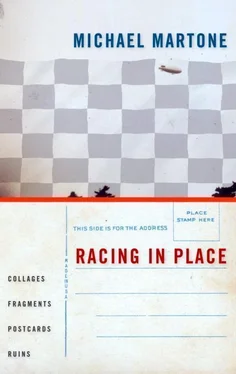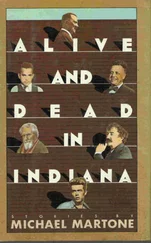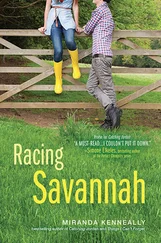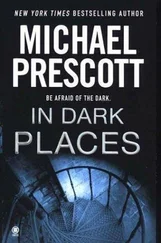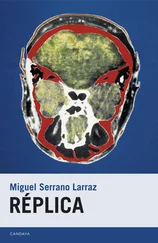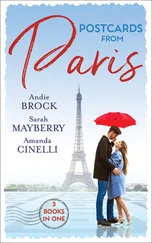In the Waiting Room
"You can go," Doctor X says. I am in his office and I take his "you can go" both ways. That is, I can go now and leave this room which is, I realize at this instant, a kind of waiting room now, outside, as it is, of the next room I must enter. Or I can go, leave this place, this S, altogether. There was a moment in the Mustard Meeting, in the room in the philosophy department, a moment when I knew I would go. With the silent mediator opening square after square of chocolate, enthralled by the stories being constructed by W, K, and H. In the middle of this, I was struck by the thought that all was lost, that I was lost. I was an M. I was merely a character now in this room, in this place, written out in the meantime, in the corroborating narratives of W, K, and H, reiterated in the meetings they had together in the run-up to this meeting with me. An M. An M who had been written up and written off. I wasn't in that room anymore. So I could go. And I went.
The Copy Room
I am in the copy room, copying my vita, an academic resume. The copy room is windowless, air forced in through vents near the ceiling. The wall of shelves is stacked with reams of white paper, letter and business. The lights hum and the copier stutters through its cycle. All around are the fossil remains of extinct business machines, heaps of the obsolete technologies of duplication-thermograph, ditto, mimeo-their cords coiled. The machines are clad in those exhausted colors-putty, gunmetal, drab. With each swipe it makes, the green light of the copy machine leaks a little from beneath the lid. For the pur poses of furthering my employment opportunities elsewhere, I have reduced my life to a page of copy. I am making fifty copies of the copy. The vita's form is boilerplate. There are bullet heads for EDUCATION, AWARDS, PUBLICATIONS, TEACHING, SERVICE, in bold all caps. H comes into the copy room, queuing up behind me. We exchange pleasantries. "Be done in a jif." We have all been pleasant this fall after we have CLEARED THE AIR in the August meeting, the one I call the Mustard Meeting. That's how W, K, and H characterize what happened then and there: THE AIR WAS CLEARED. WE CLEARED THE AIR. On my vita, there is the bullet labeled EXPERIENCE, and I have advertised there the position I still hold, Director of Creative Writing. The meeting in August, the one I call the Mustard Meeting, was held because W, K, and H had LOST CONFIDENCE in me as Director. Now a few weeks later I am still Director. "Be the Director," I was told at the end of the Mustard Meeting. You know, Doctor X says to me in his office, this hasn't been about you as Director. This hasn't been about CLEARING THE AIR. This hasn't been about LOSS OF CONFIDENCE. The copy machine performs its little rumba of reproduction, counting down to naught.
The Cloud Room
Before we go out to the car to go for good, we walk through the empty house in S, my wife and I and our two boys. We say goodbye to all the empty rooms, starting in the basement where Sam had set some handprints on a jacking pad we'd poured when we moved in. I carry the little one, Nick, the two year old, and borrow the chant from one of his bedtime story books. I have learned, in telling my stories to Doctor X, in listening to myself tell my stories to Doctor X, the power of litany to both cudgel and comfort. At this moment, I am all for the possibility of comfort, the soothing murmur of the lullaby, of language laying to rest. Say good-bye, I say. Good-bye kitchen. Good-bye dining room, good-bye. Good-bye living room. Good-bye stairs. Goodbye your room and good-bye Sam's room. Good-bye our room. Good-bye bathroom. Good-bye Mom's office painted school bus yellow. We climb into the finished attic where some sorry soul poked a few skylights through the roof to get what sun there was, my office, where I wrote, three stories up inside a blue house. The cloud room, Sam called it when he first saw it. Dad is in the cloud room. Say, good-bye cloud room, good-bye.

I
I am a gawker. A bumpkin, a hayseed from the Midwest, I stand on the wide sidewalks of cities to look up at the tall buildings. The pedestrians stream grudgingly by, parting into channels on either side of my shoal-like stillness. The walls launch from the same concrete on which I am standing. They vault into the air. This looking creates pleasant illusions. My vision, as it swipes along the lithic or glass facades, recreates the sped-up record of the tower's construction, brick on brick furiously morphing into a solid sheet, raining upward. It is that cinematic technique of vertigo, that pulled focus of the camera lens, the simultaneous clarity of the very close and the brilliant detail of distance itself stretching, stretching even further away. I am looking straight up! All that is square to the solid deck beneath my feet, all these truly true vertical lines, diminishing as they go (and they do go), vector toward that very center of the endless sky. All lines point to the vanishing point. I am looking straight up! I can see the point of vanishing. This perfect lesson of perspective. This gawking is, perhaps, a function of my midwestern-ness, an expression of my eyes' evolution on a flat plain. The horizon is all periphery, one endless sentence. The horizon is not this concentrated speck of attention up there, not this black pinprick of convergence, not this dot at the end of seeing seeing, not this infinite period.
2
They are called cars. The first one I remember was piloted, its operator uniformed identically to the then contemporary, early '60s stewardess. The white gloves. The fitted flannel suit. The military buttons. The raked hat with affixed winged device and contrasting piping edging its many folds. Now elevators are selfservice, and we forget because they are designed to make us forget, that they are vehicles moving through space. The hobbled acceleration of that motion, today, is so damped, disguised. You enter. The doors close. The doors open. And you are somewhere else. It's as if the building rearranged itself outside while you waited in the closed box, or burly work crews struck the lobby like a stage set behind the sliding curtain. Sure, the numbers flash as you pass from floor to floor but that is simple distraction, the only real movement this awkward analog one. My first trip? The first one I remember. I traveled from the ground to the third floor of a small department store. The operator manipulated levers, turned wheels guiding our vehicle. She stopped at the intervening floors, the stool she leaned on springing back up against the wall as she reached across the car to open the first set of double doors. "Going up. Mezzanine. Going up. First floor." The landings were never exact, the floor of the car and the floor of the floor misaligned like a square of sidewalk dislodged by a tree root. She inched the two floors together, the nudge teasing the tension in the cables to sing, covering her operations with recitation of the floor's merchandise, a kind of tour guide. "Watch your step." Later, I waited on the third floor. I was in another world, the world of underwear, husky pants, school shoes, brownie uniforms, belts, handkerchiefs, flatware, china, lunch pails, luggage, and travel alarms. But I lingered at the landing. I watched the cars arrive from below, depart. There were two shafts, the cars' alternating rise and fall, a kind of breathing. A distinct shadow filled the squares of light in the opaque windows of the outer doors. The bell struck flat, the tinny ceremony of arrival. "Watch your step." I made no move for the empty car. "Going down." The doors slid shut. The muffled announcement of the next destination filtered through. I watched the shadow sink, compress into a line at the lip of the floor. Going, then gone.
Читать дальше
